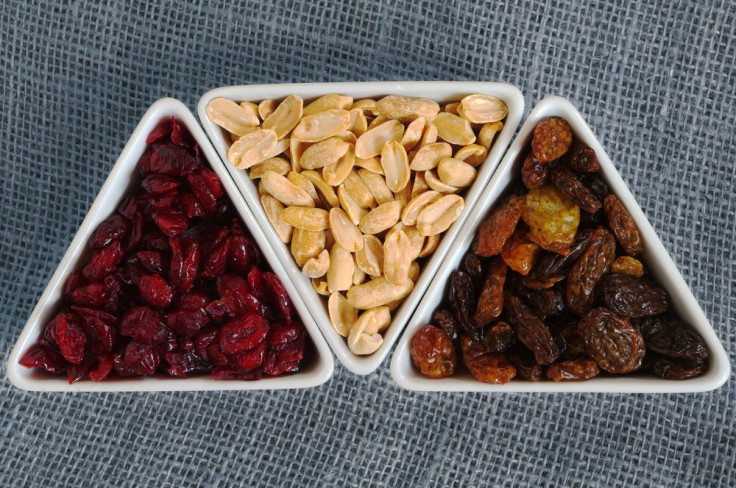Peanut Allergy Cure? New Immunotherapy Uses Cranberries To Make Peanuts Invisible To Immune System

Though they’re popular, peanuts are one of the most common and dangerous food allergens. As anyone who is allergic to them would know, they show up almost everywhere — many food processing plants process nuts — constantly posing a risk of anaphylaxis. But a new study may bring hope to those who suffer, finding that polyphenol-rich foods, such as cranberries, blunt the effect of the peanuts, thus providing an opportunity for immunotherapy.
Peanut allergies affect an estimated 400,000 school-aged children and countless adults throughout the U.S., according to the American College of Allergy, Asthma, and Immunology (ACAAI). Immunotherapy is a promising treatment for abating allergic reactions, already showing promise through other studies on peanut allergies, but also working for insect sting allergies and grass allergies. It works by introducing small amounts of an allergen to a patient, weaning them out of being allergic.
Researchers from North Carolina State University looked to find a better form of immunotherapy than the rest, which came in oral form and still presented the risk of an allergic reaction. The reaction occurs when proteins in the peanuts make contact with immune cells known as mast cells and basophils, which produce the binding proteins immunoglobulin E (IgE). When both IgE and the peanut proteins make contact, the allergic reaction sets off, causing inflammation molecules to spread throughout the body, which leads to shortness of breath and swelling.
Having heard rumors about polyphenolic foods canceling out these reactions, the researchers decided to test some out. Because polyphenols are antioxidants — think resveratrol in grapes and wine — they may bind to the proteins in peanuts, thus eliminating any possible connections IgE can make, allowing the peanut to be eaten without risk of a reaction.
So, the team added peanut flour to polyphenolic powders and juices, including elderberry, blackcurrant, cranberry, green tea, cinnamon, and grapes. They then froze the mixtures for a little time to see how the proteins bound together, and found that the cranberry-peanut proteins came together the best, Chemical & Engineering News reported. They then introduced the mixture to basophil cells specially prepared to unleash an immune response, finding that the mixture triggered a less-severe response than regular peanut powder. When they introduced the mixture to mice sensitized to peanuts, they found 75 percent less biomarkers for the molecules involved in an allergic reaction than among those given pure peanut flour.
The researchers said their next steps were to try the immunotherapy on other food allergies like milk and eggs. But, in the end, the true test may be in clinical trials.
Published by Medicaldaily.com



























